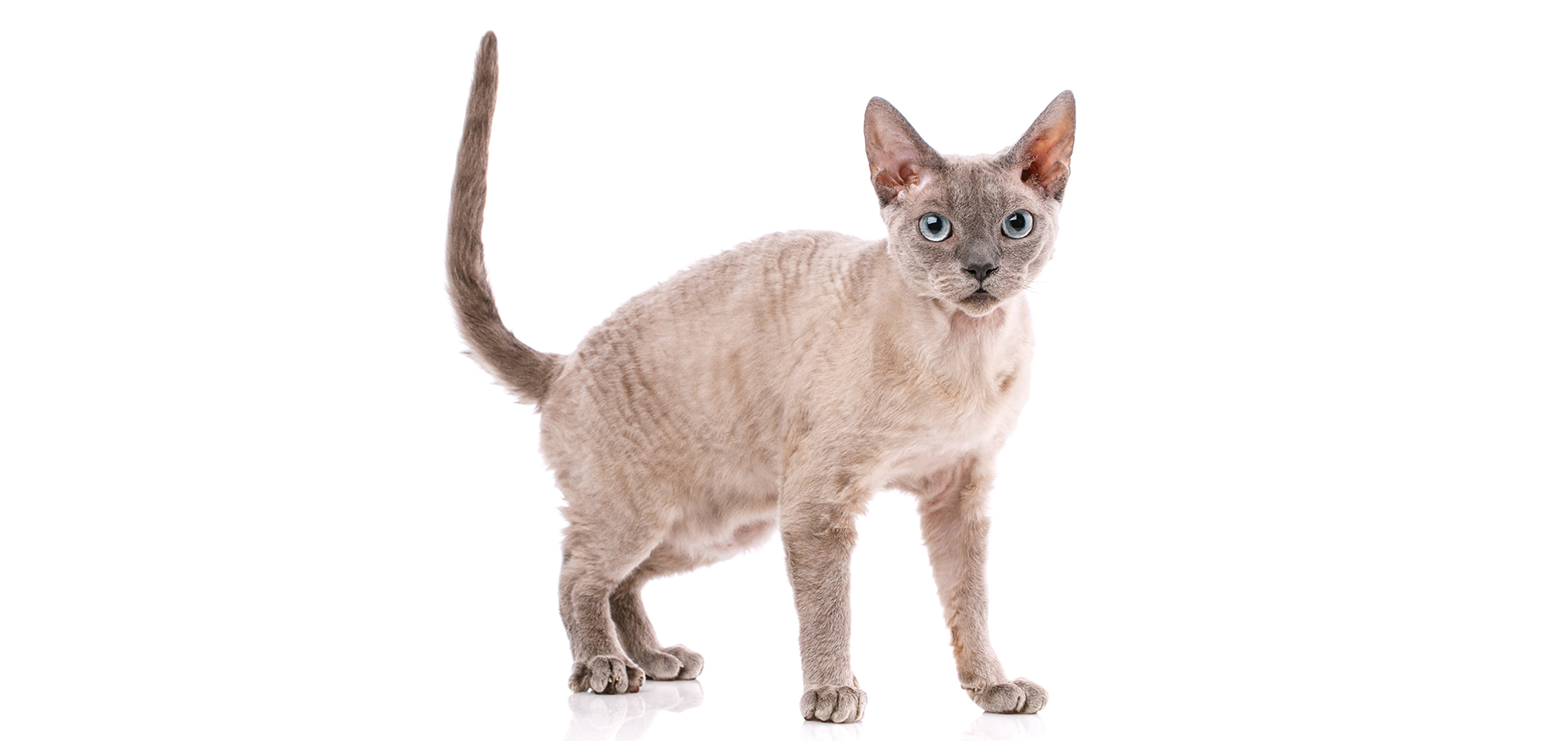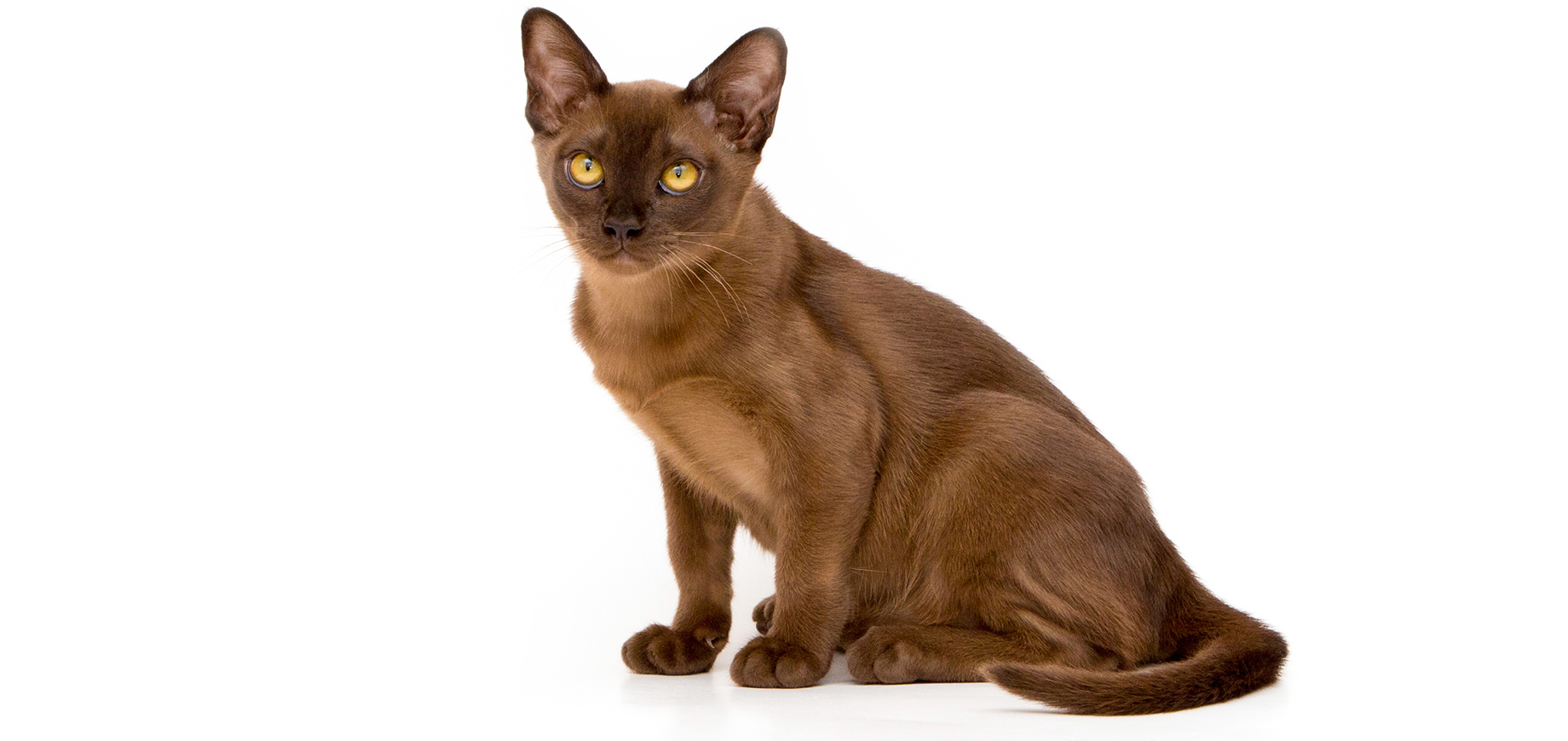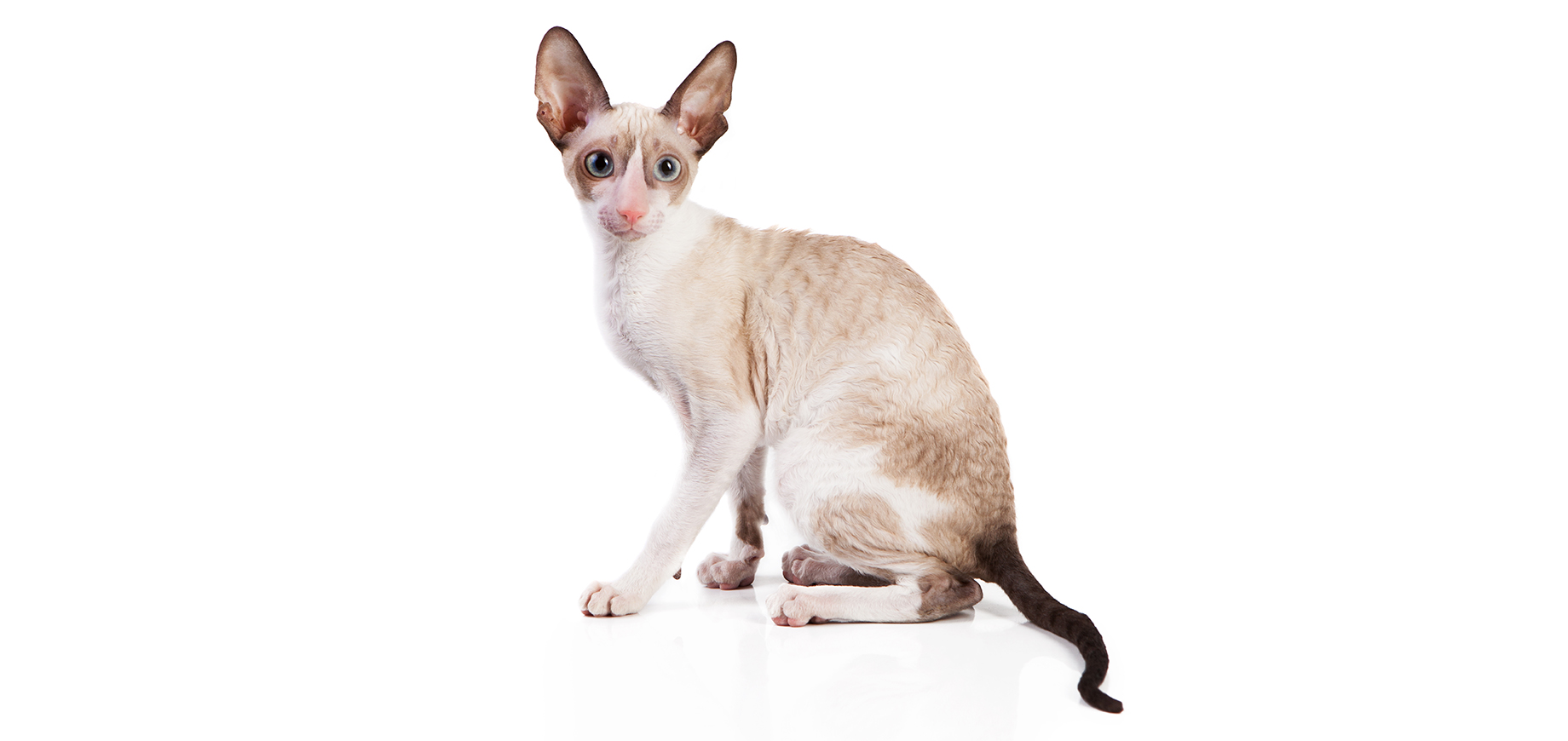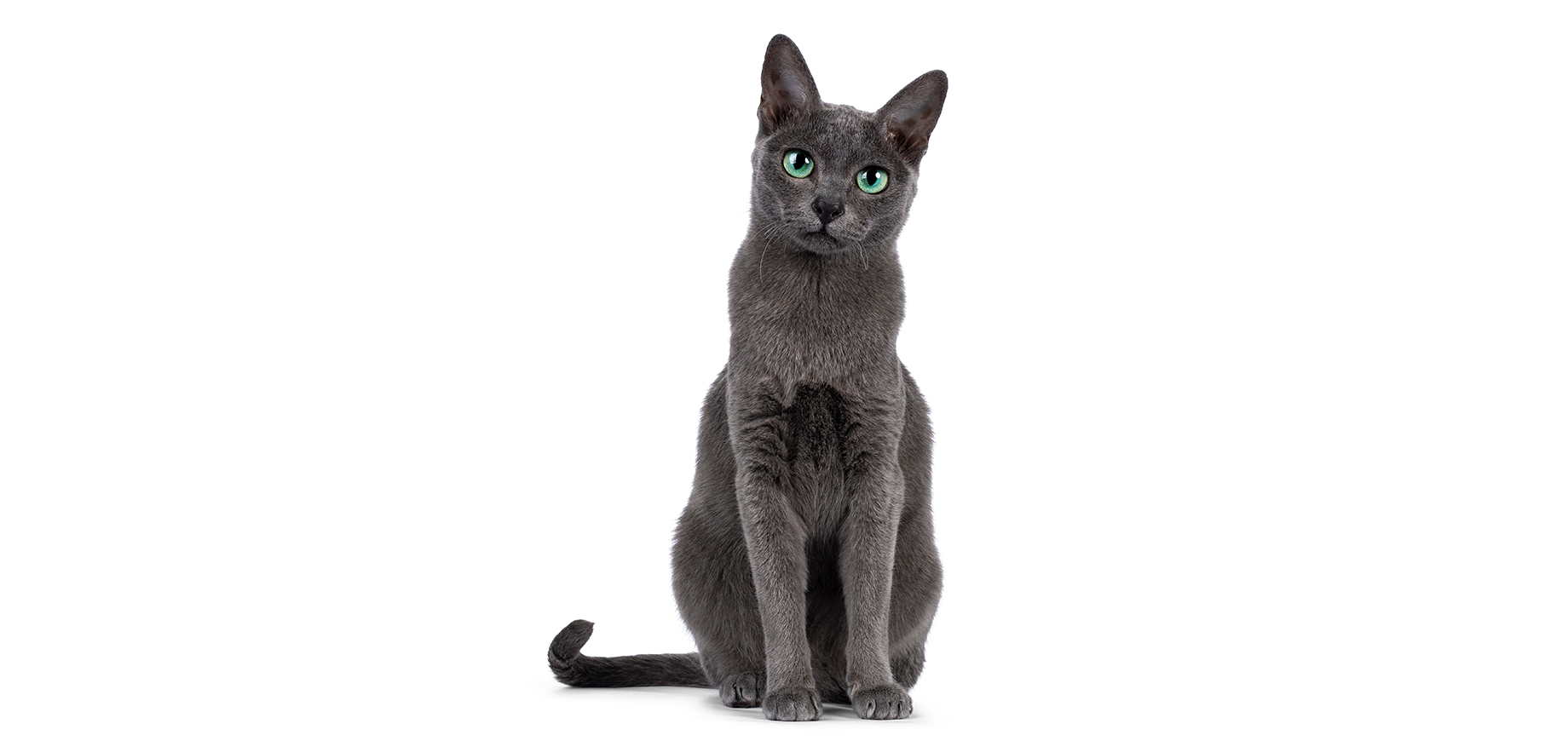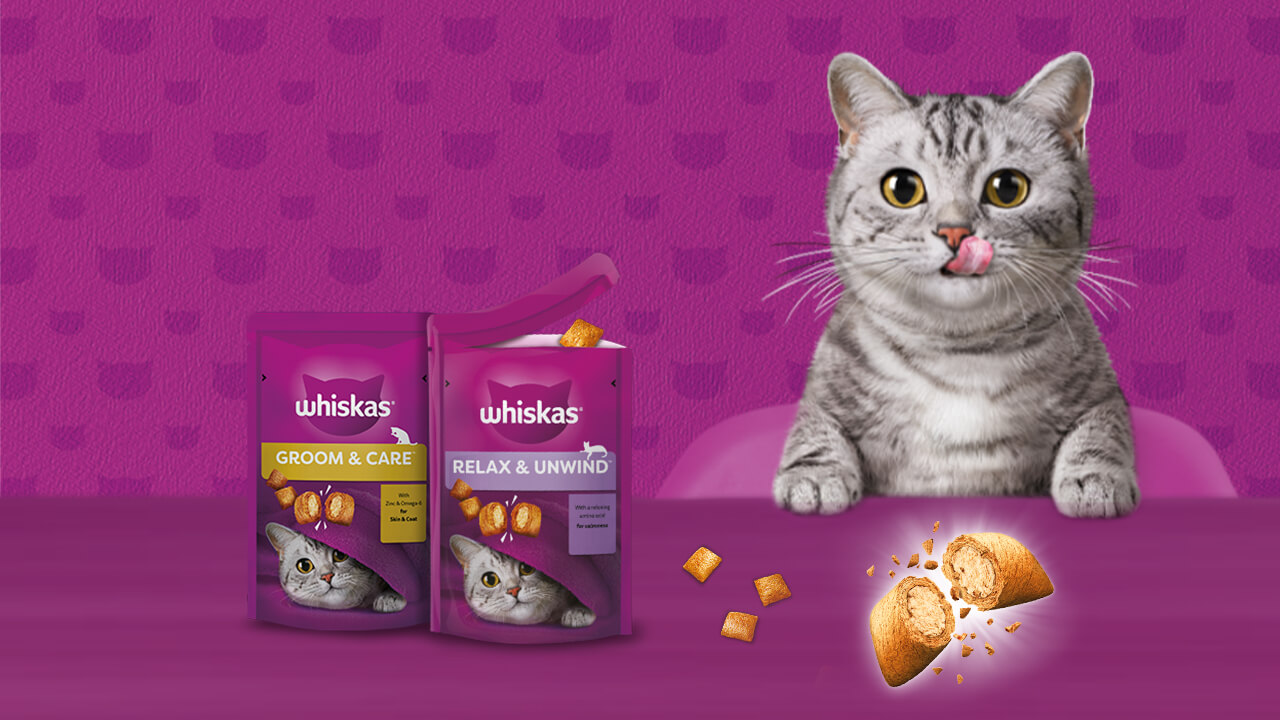Devon Rex cat – personality, care & unique Traits
With its soft, curly coat, oversized ears, and slender frame, the Devon Rex is a distinctive cat breed. These highly intelligent, energetic, and playful felines are often described as mischievous, always ready to climb, jump, and learn new tricks. Their unique appearance, combined with their affectionate and social nature, makes them a favourite among cat lovers. Beyond their fun-loving personality, Devon Rex cats are known for their deep bonds with their humans. They love being involved in daily activities, often following their owners from room to room, keen to be part of the action. Their lively personality and dog-like devotion make them a loving companion. Keep reading to discover more about what makes the Devon Rex so special, from its fascinating history and physical traits to its temperament, grooming needs, and suitability as a pet.
Where did the Devon Rex originate?
As its name suggests, the Devon Rex originated in Devon, England, and its distinctive curly coat is the result of a natural genetic mutation. The first known kitten of this breed, Kirlee, was discovered in a litter of stray kittens near Buckfastleigh in 1960. Unlike his littermates, Kirlee had an unusually soft, wavy coat, large ears, and a slender build. Recognising his unique appearance, his owner, Beryl Cox, contacted breeders of the Cornish Rex, another curly-coated breed of cat, but it turned out the Devon Rex breed was entirely separate. Thanks to its affectionate, playful personality and striking features, the breed gained popularity and was soon recognised by major cat registries worldwide.
Are Devon Rex different from Cornish Rex cats?
The Devon Rex and Cornish Rex are both curly-coated breeds, but they have distinct differences. While their wavy coats may look similar, they are caused by different genetic mutations, and one key difference is their fur texture. The Cornish Rex has just the soft, downy undercoat, creating an almost suede-like feel. On the other hand, the Devon Rex has a coarser coat with guard hairs, creating a more rippled curl. Their facial features and body shapes also differ, as the Devon Rex has a broader face with low-set ears, and a more compact build. The Cornish Rex has a longer, narrower face, featuring higher-set ears, and a more arched body. Both breeds are playful, intelligent, and affectionate, but Devon Rex cats tend to be more mischievous than the graceful Cornish Rex.
What makes the Devon Rex so unique?
- Their unique, wavy fur is the result of a genetic mutation. They lack a full outer coat, giving them a rippled texture that feels as soft as suede or velvet.
- Devon Rex cats have a slight pixie-look to them, with large, bat-like ears, high cheekbones, and a delicate frame.
- The breed shed much less than others as they only have a small amount of fur but they aren’t completely hypoallergenic. They still produce allergens like Fel d 1 protein in their saliva and skin oils.
- These cats seem to have boundless energy and absolutely love to play. Owners often find they act more like dogs than your typical lounging cat.
- The Devon Rex breed loves being part of the family and go on to form strong bonds with their humans. Some might even perch on your shoulder as you sit on the sofa or walk around the house.
- Because they have a delicate coat, these cats require very little grooming. They may need occasional wiping to remove oil buildup on their skin, particularly around their ears and on their paws.
Personality & temperament – what to expect
High energy and love for play
Want a cat that acts like a kitten all the way into adulthood? The Devon Rex may be the perfect pet for you. These cats are always moving, playing, and looking for new adventures. Their impressive agility allows them to jump and climb to the highest spot in the room, chase after thrown toys, and learn a selection of new commands and tricks. It’s important that owners keep their high-energy Devon Rex entertained and active to avoid
Intelligence and trainability
- Devonshire Rex cats are exceptionally smart and highly trainable, making the experience enjoyable for both pet and owner. They quickly pick up routines and can even learn dog-like games, such as fetch. Their curiosity and eagerness to engage make training a fun and rewarding activity for everyone involved.
- Devon Rex cats are also highly responsive to their owners and crave recognition. Their desire to please makes them easier to train than many other cat breeds.
- These affectionate cats love human companionship and form strong bonds with their families. As long as they receive plenty of attention and interaction, they remain loyal and loving pets. Their playful yet gentle nature makes them a great fit for homes with young children, as they thrive on interactive play and enjoy being part of family activities.
- They typically get along well with other pets, including dogs, but proper introductions are key. A slow, supervised approach helps ensure a smooth transition and increases the chances of a harmonious relationship with other animals in the household.
Do Devon Rex cats like to cuddle?
When choosing a cat to welcome into your home, one of the most important questions to ask is whether or not they enjoy affection and cuddles. The good news is, the Devon Rex is a perfect choice, as they crave physical contact and thrive on human interaction. They easily form deep and lasting bonds with their owners, and are often described as 'velcro cats' because they love to be as close to you as possible, at all times. Unlike some more independent cat breeds, they really enjoy being petted, held, cuddled, and generally involved in activities but may sometimes demonstrate licking and biting behaviour that can be misinterpreted. They’re a fantastic choice if you’re looking for a loving and social cat companion that acts like your shadow.
Care & grooming needs
How to groom a Devon Rex cat?
Devon Rex cats have unique grooming needs due to their soft, delicate coats and minimal fur. While they are relatively low-maintenance, a proper grooming routine is essential to keep them healthy and comfortable. Here’s what you need to know:
- Light Brushing: Devon Rex cats have fragile fur, so excessive brushing can actually damage their curls and even lead to bald patches. To be extra safe, gently remove loose hairs using a soft cloth or your hands.
- Bathing: Their thin coat produces more natural oils, which can lead to oil buildup, especially around the paws, ears, and chin. Occasional baths with mild, cat-friendly shampoo help keep their skin clean and prevent greasiness.
- Ear Cleaning: Unsurprisingly, such large ears can collect quite a bit of wax and dirt. Check their ears weekly and clean them with a vet-approved ear cleaner or warm, damp cotton pad to avoid infections and discomfort.
- Nail Trimming: Regular nail trims help prevent overgrowth and scratching. A cat-specific nail clipper works best, and if you're unsure or struggling to do it yourself, your vet nurse can assist.
- Dental Care: your Devon Rex cat can be prone to dental issues, so brushing their teeth regularly with a cat-safe toothpaste is essential for maintaining good oral health.
Common health issues in Devon Rex cats
As with every breed, there are some common concerns specific to Devon Rex cats. Health risks can be reduced by feeding them a balanced diet tailored to the life-stage and life-style of your cat, keeping on top of their grooming needs, and monitoring them loosely for any strange behaviour or changes. proper grooming, and monitor for any unusual behavior or changes in appetite. Some of their potential health issues include:
- Hypertrophic Cardiomyopathy (HCM): HCM is a heart disease that affects some cats, including Devon Rexes. If left untreated, it can lead to heart failure, so early detection and monitoring are key.
- Patellar Luxation: This kneecap disorder can limit mobility and cause significant discomfort. In more serious cases, it may even require surgical intervention.
- Skin Issues: Because this breed has a fine coat, they’re more likely to experience skin sensitivity, itchy rashes, and oil buildup. Regular wiping or gentle bathing can help avoid these issues and reduce irritation.
- Regular Vet Checkups: Just like you would take any pet to the vets for check-ups, it’s important your Devon Rex gets routine screenings throughout their life. Catching symptoms early can make a significant difference to treatment outcomes.
How long do Devon Rex cats live for?
On average, a Devon Rex cat can live 12 to 16 years, though individual lifespans vary based on genetics, environment, and overall health. To help your Devon Rex live a long and happy life, provide a nutritious diet, regular exercise, and plenty of mental stimulation. Routine vet check-ups are also essential for catching potential health issues early. Just like humans, cats with a balanced lifestyle tend to enjoy a higher quality of life and a longer lifespan. By doing your best to make sure your Devon Rex stays active, well-fed, and properly cared for, you’re giving them the best chance in life.
What should a Devon Rex cat eat?
Because Devon Rex cats have a fast metabolism, they need a high-protein diet to stay healthy, maintain their energy levels, and support muscle development. Choose high-quality complete and balanced wet and/or dry cat food to ensure they get the proper nutrients they need. This breed has a big appetite and a real love for food, so don’t be surprised if they try to sneak a snack straight from your plate perhaps show signs of aggression if they don’t get it. To prevent overeating and weight gain (which can lead to avoidable health issues) portion control is essential. Measured meals and a balanced diet will help keep your Devon Rex in tip top shape.
Is the Devon Rex the right cat for you?
Mischievous Devon Rex cats are full of personality and thrive on lots of fuss, affection, and attention. They are highly social and love to be the centre of their human’s world, often following their people around the house. They require very little grooming due to their short coats but make up for that with their high energy levels and need for regular playtime sessions and mental stimulation. Their adorable appearance, with oversized ears and large expressive eyes, makes them even more appealing as a pet. Like all cats, they love to climb and explore, always seeking out the highest spots in the house. Provide cat towers, shelves, or window perches to keep them entertained and allow them to speak up their surroundings.
Conclusion
Overall, a Devon Rex cat is a brilliant companion to have. Aside from being cute and cuddly, they’re an intelligent and lively cat breed, with lots of personality and a mischievous side to keep things interesting. If you’re an active and attentive owner who has the time and energy to keep up with their playful antics, a Devon Rex will reward you with endless love and companionship. They love to be involved in everything you do, whether it’s playing, exploring, or curling up for a cuddle. Don’t forget to check local shelters and rescue centres, because the perfect Devon Rex could be waiting there for you.
Frequently asked questions about Devon Rex cats
Why does my Devon Rex meow so much?
Because Devon Rex cats are so social, they’re also a very vocal breed. They meow for attention, food, or just to communicate with their owners. If they’re meowing more than normal, they may be bored or lonely so spend some time playing and cuddling with them.
How much does a Devon Rex cost UK?
Expect to pay £600 to £1,200 for a Devon Rex, depending on the breeder, pedigree, and general demand for the breed. It’s likely that adopting is a cheaper option, as rehoming fees are more like £100 to £300. Always choose a responsible breeder or consider adopting from a shelter.
Can Devon Rex cats be left alone?
Devon Rex cats are very social so don’t like being left alone for too long. They can get lonely, bored, and anxious, so if you’re away often then consider getting another pet to keep them company or find someone who can pop in to spend time with them.

